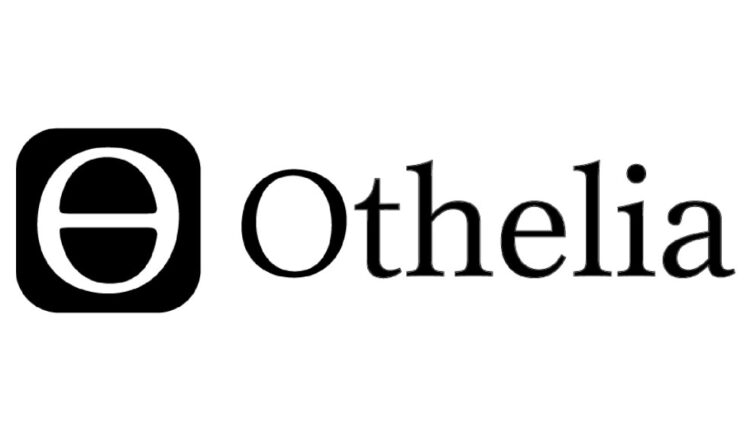Othelia Technologies has launched its AI-native storytelling platform, Othelia, which is meant to help writers, creators, and producers “structure and manage complex narrative worlds — from first draft to multi-title franchise.”
Othelia is described as a non-generative AI platform that instead “amplifies human storytelling capabilities while preserving the integrity, ownership, and authentic voice that make stories powerful.” The company notes that “all creative data housed on Othelia is fully owned and controlled by the user, with no data ever repurposed to train generative models,” but available to the user as “structured, searchable data.”
Based in Australia and founded by co-CEO Kate Armstrong-Smith and chief technology officer Joe Couch, Othelia Technologies opened its Los Angeles headquarters over the summer. Ahead of Othelia’s launch, former Bento Box Entertainment CEO Scott Greenberg was named the company’s executive chairman and co-founder, and Alexandra Hooven was set as co-founder and co-CEO.
According to Othelia Technologies, the new platform is meant to address the “bottleneck” of rewrites in the production process by “making a story’s underlying logic visible and accessible.”
Per Othelia, “The platform centralizes canon, structure, relationships, and change impact in a single source of truth—alleviating roadblocks like compromised structure, plot inconsistencies, and contradictory storylines—so notes are precisely scoped, rework drops, and the writing stays human. Teams can search by creative intent—finding specific emotions, actions, or story beats—and instantly access time-coded results across all materials.”
Othelia launched Tuesday and users can now apply for access to the platform’s beta program.
“This is what I wish I could have had at Bento Box” Greenberg said. “Every department builds off the story. When continuity breaks or a note lands late, that downstream ripple hits schedules, budgets and ultimately creative quality. Othelia keeps the canon visible and interactive, so teams can model changes before work starts and keep production moving.”
See below for Variety‘s Q&A with Othelia leadership on the launch.
Are there concerns about launching now amid the current scrutiny AI is facing from Hollywood and the overall entertainment industry? And how are you going about quelling those fears with current and potential customers and partners?
Alexandra Hooven, Othelia co-founder and co-chief executive officer: We’re launching now because of this moment, not in spite of it. The scrutiny is warranted – Hollywood is watching tech companies try to replace creative judgment with pattern recognition, treating the art of storytelling as a prediction problem. That approach fundamentally misunderstands what creators do, and the consequences are real: as AI automates more of the creative process, we’re ceding control of culture and narrative itself. The question of who shapes the stories that define us is becoming a question of who controls the tools.
Othelia is built on the opposite principle – keeping humans in control of narrative. We’re not generating content or making creative decisions. We’re infrastructure that treats stories as structured, relational data instead of static documents. When a major studio is managing a major franchise IP across decades of canon, or when a showrunner is tracking character arcs across a series, they need to see the relationships, the dependencies, the narrative architecture. That’s not an AI problem – it’s a data structure problem that the industry has been solving with disparate word docs, spreadsheets and bibles that don’t connect to one another.
That’s also why we’re not training on anyone’s data. Othelia is a walled garden – your stories, your IP, your data stays in your hands and is owned by you. We’re not building a model that learns from your work.
Our customers aren’t concerned because they understand immediately what we’re building. We’re not in the business of creative replacement – we’re building tools that preserve creative control at the exact moment the industry needs it most. The best creators already think this way. We’re just giving them the infrastructure to work at scale without surrendering ownership or agency.
What do you see as the ideal project and example of what Othelia can really do and how best it can benefit creators?
Kate Armstrong-Smith, co-CEO: For someone with an idea who doesn’t know where to begin, Othelia will help you build out the scaffolding of your story before you even move to script – the relationships between characters, the flow of information, the architecture of your story. For a professional with a first pass draft, it’s about making the implicit structure explicit so you can iterate and build faster. For a writers room developing a series, it’s ensuring everyone is working from the same structural foundation – no more version control chaos or misaligned character arcs across episodes. And for studios managing complex IP assets – decades of canon, cinematic universes – it’s the same structural thinking at a scale where traditional tools break down completely.
What they all have in common is that the core story logic lives in traditional documents, in one individual’s head, or scribbled across whiteboards. Change one element and you’re manually hunting for every downstream ripple effect. With Othelia, those relationships become a queryable structure. You can ask: ‘If I move this revelation, what breaks?’ You can instantly see the scenes or characters where a change in motivation matters, or how information flows across timelines.
That visibility matters even more in production. A late story change cascades across costume, set design, shooting schedules, VFX. When structure is visible from the start, you catch those dependencies before they become budget bloat.


